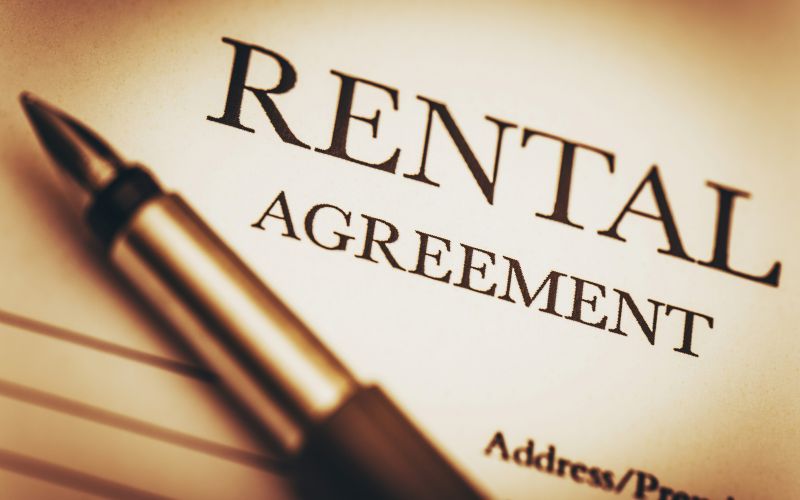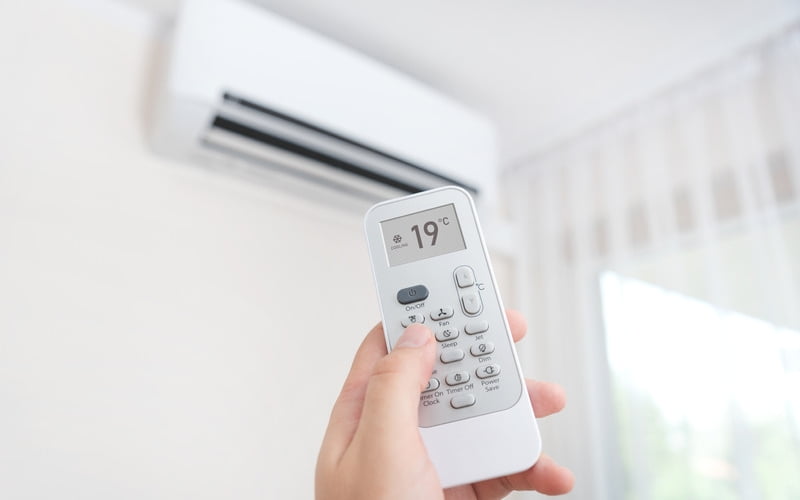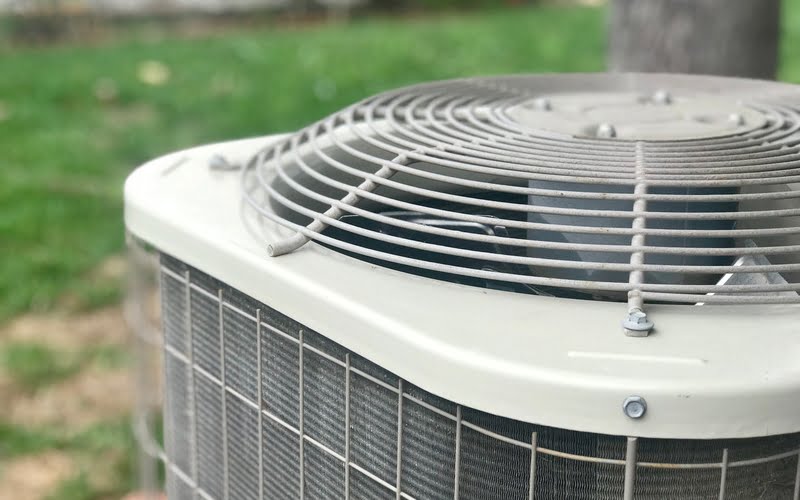Last Updated on March 18, 2024 by Kelvin Nielsen
Are you a renter in Alaska and would like to familiarize yourself with your rights? If so, here’s everything you need to learn about renters’ rights in Alaska!
The Uniform Residential Landlord & Tenant Act (URLTA – AS 34.03.010 – 34.03.360) guarantees tenants certain rights in a tenancy.
But first things first… who exactly does Alaska law consider to be a tenant? Well, you can only be considered a renter in Alaska if you meet either of the following three requirements.
- Have a written agreement.
- Have an oral agreement.
- If the landlord has accepted payment as rent.
Once you’ve become a renter, you automatically acquire certain rights under the URLTA. As a renter, knowing your rights will ensure you protect yourself from potential exploitation by your landlord.
For instance, unjust eviction, discrimination, unlawful rent increase, or even harassment.
The following is everything you need to know regarding Alaska renters’ rights.
Alaska Renters Rights
1. You have a right to live in a habitable rental property.
Alaska renters have a right to live in a home that meets the basic health, safety, and health codes. The state’s warranty of habitability requires landlords to provide the following to renters.
- Supply heat at all times. Alaska residents have no use for air conditioning.
- Provide hot and cold running water.
- Provide a working smoke and carbon monoxide detector.
- Provide sufficient garbage receptacles and garbage pickup services.
You may also want to check what the lease says about other things such as mold removal, pest control, pest infestation, and washer & Dryer.
In addition to providing these, your landlord must also make repairs to issues that impact your health and safety within a reasonable time. Specifically, the landlord must make the repairs within 10 days of receiving proper notice.
If the landlord doesn’t, you may be able to break the lease without penalty, sue for damages, or repair the problem yourself and deduct the cost from future rent payments.
However, please note that you cannot withhold rent for whatever reason in Alaska. Doing so may constitute a serious lease violation, which may even lead to you eventual eviction from the property.
2. You have a right to a proper eviction process.
Yes, your landlord has a right to evict you for various legitimate reasons, such as nonpayment of rent or after lease expiry.
That said, your landlord cannot use illegal methods to make you leave the property. For instance, locking you out, removing your personal belongings, or shutting down a utility. These are all examples of “self-help” eviction methods and are all illegal.
To legally evict you from the property, the landlord must follow the proper eviction process outlined under Alaska law. If the eviction is due to nonpayment for rent, for example, the landlord must follow the following process.
- Serve the tenant with a 7 day eviction notice.
- Once the 7 days are over and the tenant hasn’t left or paid the rent balance, you can continue with the eviction by filing a lawsuit against the tenant in court. The court will subsequently issue you with a copy of the Summons and Complaint, which will need to be served on the tenant by a process server or sheriff.
- Wait for the tenant to answer. This will give the tenant an opportunity to fight or stop their eviction if they have a legal defense.
- Both parties will need to attend the eviction hearing. In Alaska, it normally takes 15 days after the filing of a complaint with the court for a hearing to be held.
- If the judgment is in your favor, the court will issue you with a Writ of Assistance. This will authorize the sheriff to remove the tenant by force (if need be).
3. You have a right to exercise a legal right without being retaliated upon.
You have certain legal rights under the URLTA. Such as, the right to remain on the property until the proper eviction process has been followed, and to report a landlord to local government agencies for habitability issues.
Whatever form it comes in, landlord retaliation is illegal in Alaska. Landlord retaliation is meant to make a tenant’s living conditions uncomfortable so as to make them vacate the premises.
The following are examples of landlord retaliation in Alaska.
- Verbal abuse by threatening or yelling at you, or even using derogatory language on you.
- Physically intimidating you by banging on doors or walls, making loud noises, or following you around.
- Making unreasonable demands, such as requiring you to give up your right to privacy.
- Raising rent illegally.
- Reducing a serving that is promised in the lease agreement.
- Threats of eviction.
If your landlord does any of these things, you can file a complaint with the Alaska Department of Commerce, Community and Economic Development (ADCCED).
4. You have a right to the return of your security deposit at the end of the lease term.
Most landlords require tenants to pay a security deposit as part of the move-in costs. The statewide security deposit law requires landlords to abide by certain rules.
For instance, your landlord must not charge you a deposit exceeding 2X the monthly rent. If the rental price is, say, $1,500, then the landlord must not charge you a deposit exceeding $3,000.
What’s more, the landlord must store the deposit in a particular manner. Specifically, they must hold it in either of three ways. That is, either in a trust bank account, a savings and loan association, or with a licensed escrow agent.
Additionally, the landlord must not wrongly withhold it after you move out of the property. If there are deductions, the landlord must return it within 30 days of moving out. But in the absence of deductions, they must return the deposit within just 14 days.
Here is a guide on Alaska security deposit rules that every landlord must abide by when charging security deposits.
5. You have a right to terminate the rental or lease agreement.
If you wish to terminate a periodic lease agreement, you must provide a proper notice before moving out. The amount of notice to serve will depend on the frequency with which you make rent payments.
If paying rent on a weekly basis, you must provide the landlord with a 14 days’ notice. If paying rent on a monthly basis, you must provide the tenant with a 30 days’ notice. There are no statutory requirements for rent paid on a quarterly or yearly basis.
Things, however, become complicated when it comes to fixed-term leases. Generally, with a fixed-term lease, a tenant must wait for the entire term to run its course before moving out. The only exception would be if you have a legally justified reason. Such as:
- If starting an active military career.
- If the unit becomes uninhabitable.
- If the landlord harasses you.
- If the lease agreement contains an early termination clause.
For all other reasons, you may still be liable to paying the landlord all the rent remaining under the lease. Examples of legally unjustified reasons for breaking a lease in Alaska include:
- Divorce or seperation.
- Buying a home.
- Relocation for work or school.
- Breaking the lease because you no longer like the landlord or neighbors.
- Breaking the lease to go live with a lover.
However legitimate these reasons may sound, on their own, they may not be enough to let you off the hook from your lease responsibilities.
6. You have a right to a proper rent raise.
There is no denying it. Alaska is a landlord-friendly state. Among other things, it doesn’t have a rent control law. And consequently, this means that your landlord can charge whatever amount of rent, increase it by whatever amount, and as often as they choose.
That said, you have certain rights in this regard as well.
- The landlord must not increase the rent during a fixed-term lease.
- The increase must not be borne out of discrimination of state or federally-protected class.
- The increase must not be borne out of retaliation.
- The landlord must serve you a 30 days’ advance notice if paying rent on a month-to-month basis.
7. You have a right to be treated without discrimination.
Federal and state laws obligate landlords to treat tenants fairly regardless of the following protected classes.
- Race
- Color
- Sex
- Nationality
- Religion
- Disability
- Familial status
- Marital status
- Pregnancy
The state agency tasked with handling fair housing complaints is the Alaska Commission for Human Rights.
8. You have a right to privacy.
Alaska renters have a right to privacy. The landlord cannot just barge in on you whenever they feel like it. While they have a right to entry, they must do it in accordance with Alaska privacy laws. The laws dictate that the landlord does the following.
- Have a legitimate reason for entry. Legitimate reasons for landlord entry in Alaska include rental inspections, property showings, and rental maintenance.
- Provide 24 hours’ advance notice. The only exception to this is if the landlord is responding to an emergency or if it’s a court order.
- The entry times must also be reasonable. The landlord must enter during normal business hours or as agreed.
If the landlord violates your privacy, you may be able to exercise either of the following rights. Such as, get an injunction against the landlord, or break the lease without penalty.
9. You have a right to be provided with certain mandatory disclosures.
Your landlord must provide you with certain mandatory disclosures before you can sign the lease agreement and move into the rental property. The disclosures are as follows.
- Disclosure on the use of lead-based paint for homes built prior to 1978.
- The landlord’s name and contact address.
- That the tenant must notify you whenever looking to stay out of the unit for more than 7 days.
- A disclosure of reasons that can make the landlord withhold part or all of your security deposit.
Frequently Asked Questions (FAQs): Alaska Renters Rights
Q: What a landlord cannot do in Alaska?
A: There are a number of things that your landlord in Alaska cannot do during a tenancy.
- Your landlord cannot discriminate against you on the basis of certain federal and state classes. These include: race, color, nationality, sex, religion, and disability.
- Your landlord cannot refuse to make a repair for an issue that impacts your health and/or safety. Alaska law requires that landlords make such repairs within 10 days of receiving proper written notice.
- Your landlord cannot wrongfully withhold your security deposit. You have a right to receive part or all of your security deposit within 14 days (no deductions) and 30 days (deductions) after moving out. What’s more, your landlord cannot charge you more than 2X the monthly rent as a security deposit.
- Your landlord cannot evict you illegally in Alaska. They must follow the law down to the letter. They must have a legitimate reason and serve you the appropriate eviction notice, among other things. They must not resort to unlawful things like throwing out your belongings, locking you out, or shutting down a utility.
- Your landlord cannot terminate your lease illegally. In a periodic lease agreement, the landlord must serve you with proper notice before requiring you to move out. For example, if paying rent month-to-month, the landlord must serve you a 30 days’ advance notice to terminate your lease.
- Your landlord cannot enter without notice in Alaska. State law requires landlords to provide tenants with a 24 hours’ advance notice prior to entering their tenants’ rented premises.
Q: Is Alaska a tenant-friendly state?
A: No, Alaska is considered to be a fairly landlord-friendly state. There is no rent-control law and landlords can raise rent by whatever amount they want, and as often as they like. Landlords can charge a security deposit of up to 2X the monthly rental price, and there is no limit where the rent exceeds $2,000 per month.
What’s more, landlords in Alaska can evict tenants for a broad range of reasons. From nonpayment of rent, to lease violations, to failure to allow landlord access, to everything in between.
Q: Can a tenant withhold rent in Alaska?
A: No, this is one of the things that a tenant cannot do in Alaska. Withholding rent can constitute a serious lease violation that can lead to your eviction.
That said, tenants in Alaska can “repair and deduct” when the landlord fails to make repairs on time. The remedy allows a tenant to pay for the repairs themselves and then deduct the appropriate costs from future rent payments.
But before you can repair and deduct, make sure to keep the following things in mind.
- Notify the landlord of the required repairs. This must be in writing.
- The issues must have an impact on your health and/or safety.
- You must pay for the repairs and keep the receipts.
Another remedy you have apart from repair and deduct is suing the landlord for damages.
Q: Can you break a lease in Alaska?
A: Absolutely! If breaking a periodic lease, you must serve the tenant with an appropriate termination notice. For instance, if you’re on a month-to-month lease, you must serve the landlord with a 30 days’ advance notice.
However, if breaking a fixed-term lease, then you’ll need to have a legally justified reason before moving out. For instance, breaking the lease to start active military service, or due to a habitability violation.
Breaking the lease for reasons such as job relocation or divorce may not be enough to release you from your lease obligations. In other words, you may still be liable for paying all rent remaining in the lease.
Here is a comprehensive guide on breaking a lease in Alaska.
Conclusion
Alaska renters acquire a smorgasbord of rights under the Uniform Residential Landlord & Tenant Act. And these rights cannot be waived regardless of what the rental agreement says.
Disclosure: The content herein isn’t a substitute for advice from a professional attorney. It’s only meant to serve educational purposes. If you have a specific question, kindly seek expert attorney services.
Sources: https://www.law.alaska.gov/department/civil/consumer/3403010.html, Alaska Stat. § 34.03.070 (2022), Alaska Stat. §§ 34.03.080, 34.03.150 (2022), Alaska Stat. § 34.03.290 (2022), Alaska Stat. § 34.03.160 (2022), Alaska Stat. § 34.03.140 (2022),

Hi, I’m Kelvin Nielsen, an experienced landlord and accomplished real estate lawyer. My focus is on answering your questions about renting in the hopes of making your life as a renter or a landlord a bit easier.







